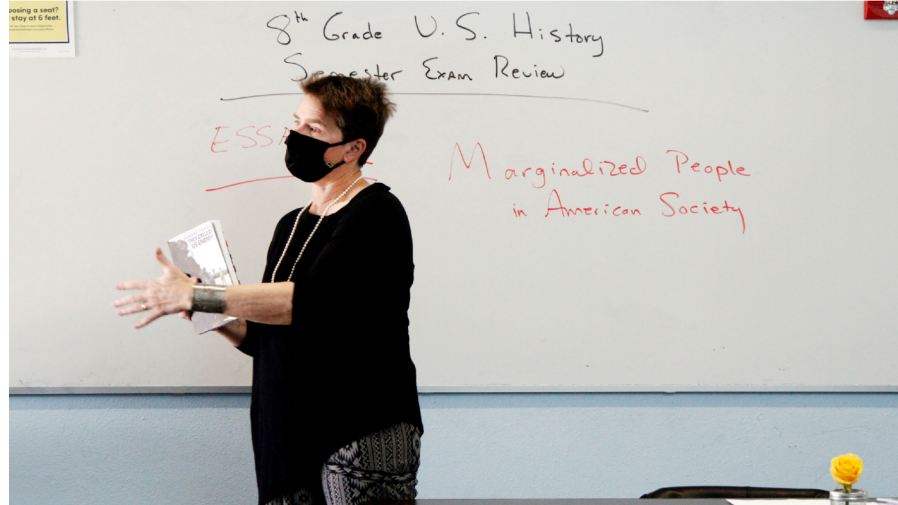Five challenges educators face amid Teacher Appreciation Week

Educators across the country are celebrating Teacher Appreciation Week amid a bevy of challenges facing their profession, some long-standing and others lingering from recent struggles with COVID-19.
While teachers take advantage of the discounts and deals from companies and occasional gifts from students this week, they are also using the extra attention to highlight problems in their field.
Here are five challenges educators are facing:
Fights for pay increases
Teachers long have called for higher salaries, arguing they are underpaid for the amount of work they do and, in some cases, can’t afford to live in the communities they serve.
A report the National Education Association released last year found that in the past decade, adjusting for inflation, a classroom teacher’s salary decreased by 3.8 percent.
“There is no better way to appreciate teachers than to pay them appropriately,” Randi Weingarten, president of the American Federation of Teachers, tweeted on Monday.
“This #TeacherAppreciationWeek, take action with @AFTunion to urge your senators and representative to sponsor bills that would raise teacher pay,” she added.
The unrest over teachers’ pay is particularly visible as educators have been on strike in Oakland, Calif., over contract negotiations.
Student behavior
Teachers are still dealing with the fallout from the coronavirus pandemic in classrooms, including an increase in student misbehavior marked since the return of in-person classes.
A recent EdWeek Research Center survey found 70 percent of teachers, principals and district leaders think students are misbehaving now more than in 2019.
Crystal Thorpe, the principal of Fishers Junior High School in Fishers, Ind., previously told The Hill that last school year was the worst for her school in terms of aggression from students and fights.
Although this year has been better for Thorpe, other schools still see concerns from students as they finish their first year of in-person classes since the pandemic, sounding the alarm on a stunt in student social-emotional growth during the pandemic.
Burnout
While the alarm has been ringing on teacher burnout for a long time, the calls have been amplified since COVID-19 hit.
In the past three years, teachers have had to learn how to switch their material from in-person instruction to online classes to hybrid classrooms and back to in-person, with the knowledge that students have fallen behind and their curriculum will need to change.
The nonprofit Chalkbeat analyzed data in eight states that showed teacher turnover was at its highest in the past five years.
A Gallup poll last year found 52 percent of teachers said they were burned out in the classrooms.
During the pandemic, states were creating special measures to allow teachers from other states, retired teachers and even those who are veterans with no teaching experience to more easily come and teach in classrooms due to the shortage as educators left the field.
Falling test scores
Compounding the difficulties of student mental health with educators’ burnout, teachers are also grappling with academic shortcomings the pandemic exacerbated.
The Nation’s Report Card has shown students are decades behind in reading, math, civics and history.
Teachers must contend with how to play catch up.
In New York City, officials announced Tuesday they are overhauling their entire reading curriculum, turning to the science of phonics.
Schools also have added extra tutoring hours and are looking at over-the-summer programs to help students catch up on their studies, which is creating more work for educators.
Crackdowns from state legislatures
Educators have increasingly been thrust into the political spotlight as states take a closer look at what type of instruction they want in classrooms.
In Florida, lawmakers have passed legislation banning teachers from instruction about gender identity and orientation until eighth grade. From ninth to 12th grade, teachers can talk about the subjects only in a way that’s deemed age appropriate.
The state also has put in processes that make it easy for books to be challenged in schools and taken off shelves for weeks at a time.
Multiple other Republican-led states have passed vague laws banning critical race theory and transgender sports participation, and some have gone into discussions about how subjects such as African American history should be taught.
For the latest news, weather, sports, and streaming video, head to The Hill.

